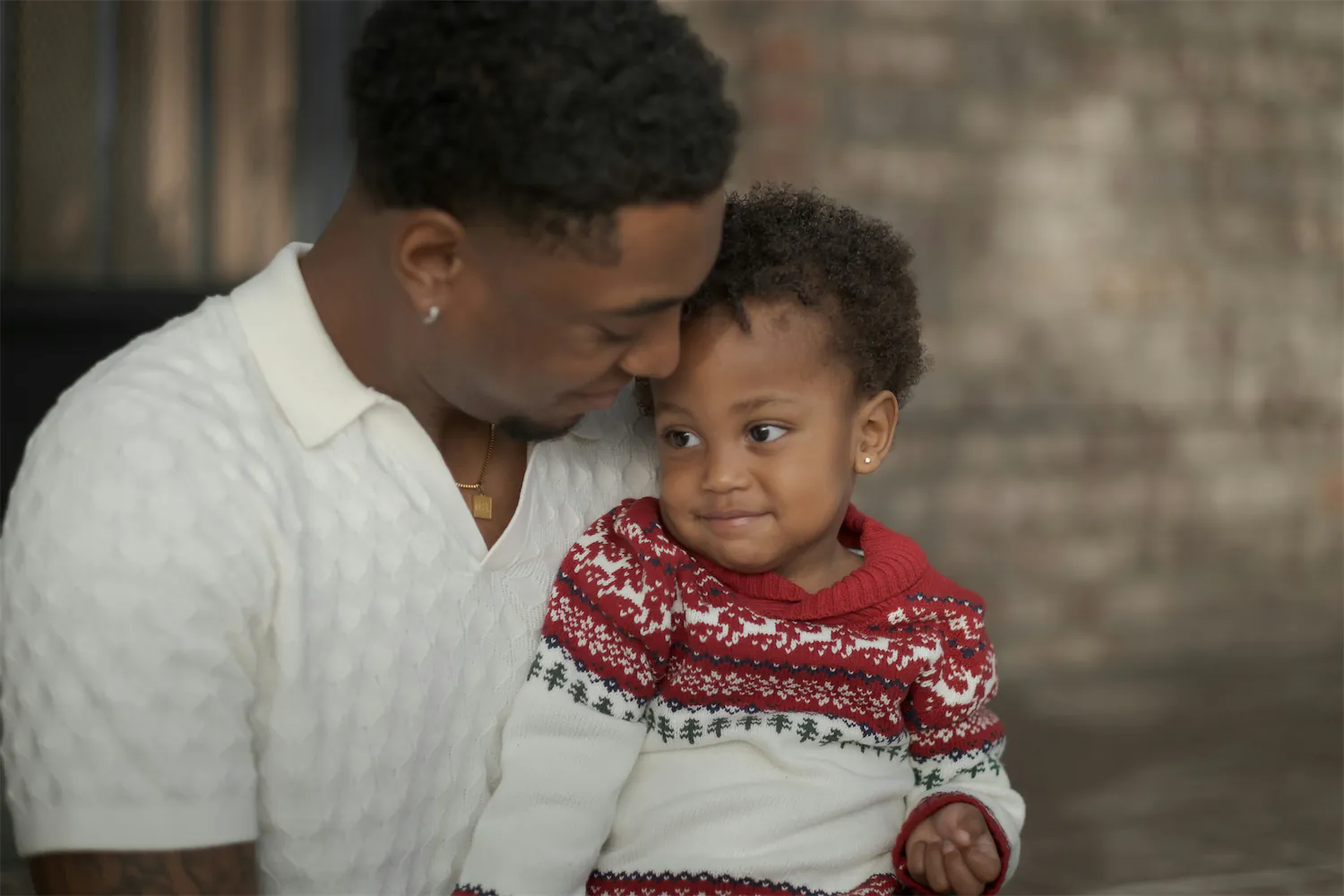Fever in infants
Fever in infants
Understanding fevers, temperatures, and thermometers
Understanding fevers, temperatures, and thermometers

Dahlia Rimmon, RDN
Content Writer

Dr. Ali Alhassani
Pediatrics and Sleep Training Expert



What is a fever?
A fever is when the body’s normal temperature goes up, usually because the immune system is battling an infection. In other words, when our body detects an issue, it turns up the heat, letting us know something is wrong.
A fever temperature in a newborn is 100.4° F (38° C) or above. If your infant has a fever, seek medical attention immediately.
Fever symptoms
Here are some other common symptoms of a fever:
Low energy and sleepiness
Irritability, crankiness, fussiness
Rapid heart rate
Poor alertness
Shivering/chills
Poor feeding
What is a normal newborn temperature?
A normal body temperature — often simply called "normal temperature" — depends on how your baby's temperature is being taken.
Rectal reading: A reading of 98.6°F (37°C) is the average rectal temp. A normal low can be 96.8°F (36°C) in the morning. It can change to a high of 100.3°F (37.9°C) late in the day.
Mouth reading: A reading of 97.6°F (36.5°C) is the average mouth temp. A normal low can be 95.8°F (35.5°C) in the morning. It can change to a high of 99.9°F (37.7°C) late in the day.
What is a safe way to take your baby’s temperature at home?
For newborns and young infants, you can use a digital rectal thermometer to check the rectal temperature. Rectal thermometers are recommended because they provide a more accurate reading of your baby’s core temperature, or rectal temperature. Some rectal thermometers might need a bit of ointment, like petroleum jelly, on the tip before inserting it. Always check the manufacturer’s instructions before use.
How do babies regulate their temperature?
Babies struggle to regulate their body temperature because their bodies are still developing. They have a larger body surface area relative to their mass (compared to adults), which means they lose heat more quickly and have a harder time retaining it. This makes it easier for their body temperature to fluctuate.
Newborns don’t have fully developed systems for regulating their body temperature, like sweating, that helps cool the body down. These combined factors make it harder for babies to stay at a stable temperature, making them more susceptible to getting too hot or too cold.
When should you check your baby’s temperature?
If your baby seems off—more sluggish, fatigued, poor feeding, or just not acting like themselves—it's a good idea to check their temperature. You can do this using a thermometer. If you don’t have a thermometer, check the back of their neck. If it feels warm and sweaty, consult your pediatrician for guidance.
Thermometer types
Digital thermometers measure temperature using electronic sensors and can be used in the mouth (oral thermometer), armpit, or rectum. The armpit reading is generally the most accurate. Digital thermometers should not be used to measure oral temperatures in children under 4 years old.
Digital ear thermometers use an infrared scanner to measure the temperature inside the ear canal. The presence of earwax or the shape and size of the ear can affect the accuracy of these readings.
Temporal artery thermometers measure temperature at the forehead using infrared technology. Make sure the forehead is clean and free of sweat before taking a reading.
Glass thermometers and mercury thermometers are no longer recommended and should not be used. Glass thermometers are sometimes called mercury thermometers because they contain mercury. They are not recommended because they easily break and can leak mercury, which is toxic.
What type of thermometer is best?
The best type of thermometer depends on your child’s age. Rectal thermometers are recommended for young infants, and for older infants and toddlers, you can use forehead, ear, or armpit thermometers. For older kids, you can use an oral or forehead thermometer.
How to dress your baby during a fever
Layer your baby’s clothing by adding one more layer than they would normally wear.
Use a hat since babies lose heat through their heads.
Avoid over-bundling which can result in overheating.
Regularly check your baby's hands and feet to make sure they are not too cold or hot.
Make sure their bedroom temperature is comfortable, between 68°F and 72°F.
How are fevers treated in newborns? Older babies?
Newborns and young infants with fevers should receive immediate medical attention. For infant fevers, contact your pediatrician for further guidance and support.
Older babies and toddlers can safely take acetaminophen or ibuprofen (6+ months). Consult your pediatrician before administering acetaminophen or ibuprofen, especially if you have a child under 1 year.
Fever and dehydration
Fevers can cause the body to lose fluids quickly, so your baby can be at risk for dehydration. If your child has a fever, it’s important to keep them well-hydrated by encouraging fluids. If your baby is breastfeeding, for example, try to nurse more often to decrease their risk of dehydration. If your baby isn’t feeding well, is lethargic, less alert, or having fewer wet diapers, contact your pediatrician for additional dehydration concerns.
What causes a fever in children?
Upper respiratory infections
If your child has a cold or other viral infections like the flu, croup, or COVID-19, they may develop a fever. Along with a fever, your baby may have a cough, runny or stuffy nose, noisy breathing, fussiness, and trouble feeding.
Lower respiratory infections
Your child may catch viral bugs like RSV or bacterial infections which can lead to pneumonia in the lower respiratory tract. Along with a fever, your baby could have a severe cough, noisy breathing, rapid breathing, wheezing, poor feeding, and extreme sleepiness. These symptoms are serious and require immediate in-person care.
Middle ear infections
Middle ear infections happen when fluid or congestion builds up in the middle ear, often due to cold symptoms. Sometimes, fluid can collect in the ear if your baby is fed in a reclined or horizontal position.
Newborn infections
Newborn infections often show up when infants are just a few days or weeks old. If your baby is unusually fussy, very sleepy, not feeding well, less alert, or has a fever, they need immediate medical attention and should be taken to the emergency room.
Stomach bugs
Kids often catch stomach bugs, especially in the spring and summer. Since stomach bugs are usually viral, kids will get a fever and other symptoms like vomiting, diarrhea, fussiness, poor feeding, and fewer wet diapers. If your child is throwing up and having a lot of diarrhea, they could get dehydrated. Reach out to your child's pediatrician if you notice these symptoms or think they might be dehydrated.
What is a fever?
A fever is when the body’s normal temperature goes up, usually because the immune system is battling an infection. In other words, when our body detects an issue, it turns up the heat, letting us know something is wrong.
A fever temperature in a newborn is 100.4° F (38° C) or above. If your infant has a fever, seek medical attention immediately.
Fever symptoms
Here are some other common symptoms of a fever:
Low energy and sleepiness
Irritability, crankiness, fussiness
Rapid heart rate
Poor alertness
Shivering/chills
Poor feeding
What is a normal newborn temperature?
A normal body temperature — often simply called "normal temperature" — depends on how your baby's temperature is being taken.
Rectal reading: A reading of 98.6°F (37°C) is the average rectal temp. A normal low can be 96.8°F (36°C) in the morning. It can change to a high of 100.3°F (37.9°C) late in the day.
Mouth reading: A reading of 97.6°F (36.5°C) is the average mouth temp. A normal low can be 95.8°F (35.5°C) in the morning. It can change to a high of 99.9°F (37.7°C) late in the day.
What is a safe way to take your baby’s temperature at home?
For newborns and young infants, you can use a digital rectal thermometer to check the rectal temperature. Rectal thermometers are recommended because they provide a more accurate reading of your baby’s core temperature, or rectal temperature. Some rectal thermometers might need a bit of ointment, like petroleum jelly, on the tip before inserting it. Always check the manufacturer’s instructions before use.
How do babies regulate their temperature?
Babies struggle to regulate their body temperature because their bodies are still developing. They have a larger body surface area relative to their mass (compared to adults), which means they lose heat more quickly and have a harder time retaining it. This makes it easier for their body temperature to fluctuate.
Newborns don’t have fully developed systems for regulating their body temperature, like sweating, that helps cool the body down. These combined factors make it harder for babies to stay at a stable temperature, making them more susceptible to getting too hot or too cold.
When should you check your baby’s temperature?
If your baby seems off—more sluggish, fatigued, poor feeding, or just not acting like themselves—it's a good idea to check their temperature. You can do this using a thermometer. If you don’t have a thermometer, check the back of their neck. If it feels warm and sweaty, consult your pediatrician for guidance.
Thermometer types
Digital thermometers measure temperature using electronic sensors and can be used in the mouth (oral thermometer), armpit, or rectum. The armpit reading is generally the most accurate. Digital thermometers should not be used to measure oral temperatures in children under 4 years old.
Digital ear thermometers use an infrared scanner to measure the temperature inside the ear canal. The presence of earwax or the shape and size of the ear can affect the accuracy of these readings.
Temporal artery thermometers measure temperature at the forehead using infrared technology. Make sure the forehead is clean and free of sweat before taking a reading.
Glass thermometers and mercury thermometers are no longer recommended and should not be used. Glass thermometers are sometimes called mercury thermometers because they contain mercury. They are not recommended because they easily break and can leak mercury, which is toxic.
What type of thermometer is best?
The best type of thermometer depends on your child’s age. Rectal thermometers are recommended for young infants, and for older infants and toddlers, you can use forehead, ear, or armpit thermometers. For older kids, you can use an oral or forehead thermometer.
How to dress your baby during a fever
Layer your baby’s clothing by adding one more layer than they would normally wear.
Use a hat since babies lose heat through their heads.
Avoid over-bundling which can result in overheating.
Regularly check your baby's hands and feet to make sure they are not too cold or hot.
Make sure their bedroom temperature is comfortable, between 68°F and 72°F.
How are fevers treated in newborns? Older babies?
Newborns and young infants with fevers should receive immediate medical attention. For infant fevers, contact your pediatrician for further guidance and support.
Older babies and toddlers can safely take acetaminophen or ibuprofen (6+ months). Consult your pediatrician before administering acetaminophen or ibuprofen, especially if you have a child under 1 year.
Fever and dehydration
Fevers can cause the body to lose fluids quickly, so your baby can be at risk for dehydration. If your child has a fever, it’s important to keep them well-hydrated by encouraging fluids. If your baby is breastfeeding, for example, try to nurse more often to decrease their risk of dehydration. If your baby isn’t feeding well, is lethargic, less alert, or having fewer wet diapers, contact your pediatrician for additional dehydration concerns.
What causes a fever in children?
Upper respiratory infections
If your child has a cold or other viral infections like the flu, croup, or COVID-19, they may develop a fever. Along with a fever, your baby may have a cough, runny or stuffy nose, noisy breathing, fussiness, and trouble feeding.
Lower respiratory infections
Your child may catch viral bugs like RSV or bacterial infections which can lead to pneumonia in the lower respiratory tract. Along with a fever, your baby could have a severe cough, noisy breathing, rapid breathing, wheezing, poor feeding, and extreme sleepiness. These symptoms are serious and require immediate in-person care.
Middle ear infections
Middle ear infections happen when fluid or congestion builds up in the middle ear, often due to cold symptoms. Sometimes, fluid can collect in the ear if your baby is fed in a reclined or horizontal position.
Newborn infections
Newborn infections often show up when infants are just a few days or weeks old. If your baby is unusually fussy, very sleepy, not feeding well, less alert, or has a fever, they need immediate medical attention and should be taken to the emergency room.
Stomach bugs
Kids often catch stomach bugs, especially in the spring and summer. Since stomach bugs are usually viral, kids will get a fever and other symptoms like vomiting, diarrhea, fussiness, poor feeding, and fewer wet diapers. If your child is throwing up and having a lot of diarrhea, they could get dehydrated. Reach out to your child's pediatrician if you notice these symptoms or think they might be dehydrated.
Summer Health offers fast and reliable pediatric urgent care through online doctors, all via text. Whether you’re worried about your baby's fever, rashes, or other children's health concerns, we provide expert advice and support anytime, right from your phone.

Never miss a post!
Sign up for our newsletter to receive articles and guides directly to your inbox!













